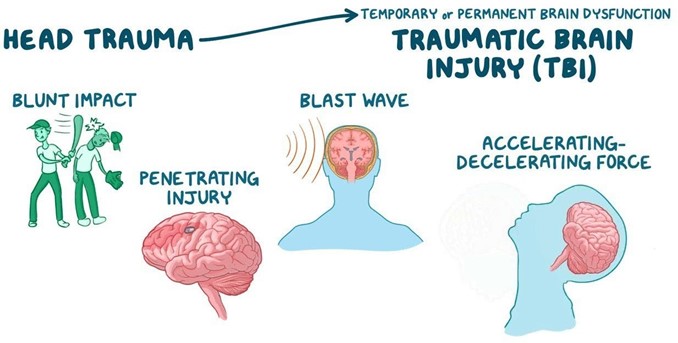A nurse is performing a neurological assessment for a client who has head trauma. Which of the following assessments will give the nurse information about the function of cranial nerve III?
Ask the client to shrug his shoulders against passive resistance
Instruct the client to look up and down without moving his head
Observe the client's ability to smile and frown
Have the client stand with his eyes closed and touch his nose
The Correct Answer is B
Choice A: Ask the client to shrug his shoulders against passive resistance is not an assessment that will give the nurse information about the function of cranial nerve III. This assessment will test the function of cranial nerve XI, which is the accessory nerve. The accessory nerve innervates the trapezius and sternocleidomastoid muscles, which are involved in shoulder and neck movements.
Choice B: Instruct the client to look up and down without moving his head is an assessment that will give the nurse information about the function of cranial nerve III. Cranial nerve III is the oculomotor nerve, which innervates four of the six extraocular muscles that control eye movements. The oculomotor nerve also controls pupil size and lens shape. By instructing the client to look up and down without moving his head, the nurse can assess the ability of the oculomotor nerve to move the eyes vertically and adjust to different distances.
Choice C: Observe the client's ability to smile and frown is not an assessment that will give the nurse information about the function of cranial nerve III. This assessment will test the function of cranial nerve VII, which is the facial nerve. The facial nerve innervates the muscles of facial expression, which are involved in smiling, frowning, blinking, and other facial movements.
Choice D: Have the client stand with his eyes closed and touch his nose is not an assessment that will give the nurse information about the function of cranial nerve III. This assessment will test the function of cranial nerve VIII, which is the vestibulocochlear nerve. The vestibulocochlear nerve innervates the inner ear and is responsible for hearing and balance. By having the client stand with his eyes closed and touch his nose, the nurse can assess the ability of the vestibulocochlear nerve to maintain equilibrium and coordination.

Nursing Test Bank
Naxlex Comprehensive Predictor Exams
Related Questions
Correct Answer is B
Explanation
The correct answer is: B. Initiate oxygen therapy.
Choice A reason:
Attaching the leads for a 12-lead ECG is crucial for diagnosing a myocardial infarction. However, it is not the first priority. Ensuring the patient receives adequate oxygen is more critical to prevent further myocardial damage. The ECG can be performed immediately after oxygen therapy is initiated to confirm the diagnosis and guide further treatment.
Choice B reason:
Initiating oxygen therapy is the first priority because it ensures that the heart muscle receives adequate oxygen, which is essential to prevent further damage during a myocardial infarction. Oxygen therapy helps to maintain tissue oxygenation and can reduce the extent of myocardial injury. This immediate intervention is vital to stabilize the patient and improve outcomes.
Choice C reason:
Inserting the IV catheter is important for administering medications and fluids. However, it is not the first step. Oxygen therapy takes precedence to ensure the heart and other vital organs receive sufficient oxygen. Once oxygen is administered, IV access can be established to facilitate further treatment.
Choice D reason:
Obtaining a blood sample is necessary for confirming the diagnosis and assessing cardiac markers. However, it is not the immediate priority. Ensuring the patient is oxygenated is more urgent to prevent further myocardial damage. Blood samples can be drawn after oxygen therapy is initiated.
Correct Answer is B
Explanation
Choice A Reason: This is incorrect because the results are not within the expected reference range. The client's BUN, creatinine, and hematocrit are elevated, indicating dehydration or reduced renal perfusion.
Choice B Reason: This is correct because evaluating urine for amount and for specific gravity can help assess the client's hydration status and renal function. These actions can help assess the client's hydration status and renal function, which may be affected by nausea and vomiting. The client's BUN, creatinine, and hematocrit are elevated, indicating dehydration or reduced renal perfusion. The normal ranges for BUN are 7 to 20 mg/dL, for creatinine are
0.6 to 1.2 mg/dL, and for hematocrit are 38% to 50% for males. The nurse should monitor the urine output and specific gravity, which reflect the concentration and volume of urine. The normal range for urine output is 30 to 60 mL/hour, and for specific gravity is 1.005 to 1.030.
Choice C Reason: This is incorrect because collecting a urine specimen for culture and sensitivity is not indicated for this client. This action is used to diagnose urinary tract infections, which are not suggested by the client's symptoms or results.
Choice D Reason: This is incorrect because decreasing the IV fluid infusion rate and limiting oral fluid intake can worsen the client's dehydration and renal perfusion. The nurse should maintain adequate fluid intake and balance to prevent further complications.
Whether you are a student looking to ace your exams or a practicing nurse seeking to enhance your expertise , our nursing education contents will empower you with the confidence and competence to make a difference in the lives of patients and become a respected leader in the healthcare field.
Visit Naxlex, invest in your future and unlock endless possibilities with our unparalleled nursing education contents today
Report Wrong Answer on the Current Question
Do you disagree with the answer? If yes, what is your expected answer? Explain.
Kindly be descriptive with the issue you are facing.
